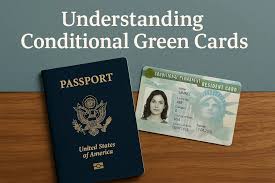How Divorce Can Impact Your Green Card Status
Divorce is a significant life event that can have far-reaching consequences, especially for individuals who have obtained their legal residency in the United States based on marriage. Immigration laws in the U.S. are designed to verify that marriages are genuine, and any disruption such as divorce can affect a green card holder’s status. Understanding the implications of divorce on your green card is essential for protecting your lawful permanent residence and navigating the complexities of U.S. immigration procedures.
This article provides a comprehensive overview of how divorce affects your green card status, differentiating between ten-year permanent residents and conditional residents, outlining the necessary steps to maintain your status, and offering practical advice on gathering and presenting evidence to prove the authenticity of your marriage. We will also emphasize the importance of timely action and professional legal support to safeguard your rights.
Permanent Green Card vs. Conditional Green Card: Key Distinctions
When it comes to marriage-based green cards, there are two primary categories that determine the length and conditions of residency: the permanent green card, valid for ten years, and the conditional green card, which is typically valid for two years. The distinction between these two types is crucial when considering the impact of divorce on your immigration status.
A permanent green card holder enjoys a decade-long lawful permanent resident status that is less susceptible to immediate revocation due to changes in marital status. In contrast, a conditional green card is issued to individuals whose marriages are less than two years old at the time their green card is granted. This status requires additional steps to remove conditions and affirm the marriage’s legitimacy before the card expires.
The Impact of Divorce on a Ten-Year Permanent Green Card Holder
For those holding a ten-year permanent green card, divorce generally does not immediately affect their residency status. Once you have been granted permanent residency and have received your ten-year card, your status is stable, regardless of subsequent changes in your marital situation.
However, there are other considerations to keep in mind. For instance, when applying for U.S. citizenship through naturalization, your marital history and the authenticity of your previous marriage may be scrutinized. Furthermore, if the divorce occurs shortly after you obtain permanent residency, it could raise questions if immigration authorities suspect the marriage was not bona fide. Nevertheless, legally, a divorce alone does not revoke a permanent green card.
What Happens If You Hold a Conditional Green Card and Get Divorced?
If you possess a conditional green card, which typically lasts two years, divorce presents more immediate challenges to your residency status. Conditional green cards require the couple to jointly file Form I-751, Petition to Remove Conditions on Residence, during the 90-day period before the card expires. This petition is crucial to prove that your marriage was genuine and not entered into for the sole purpose of obtaining immigration benefits.
In the case of divorce, filing a joint Form I-751 becomes impossible or inadvisable. Instead, you may file Form I-751 with a waiver of the joint filing requirement. This waiver allows you to provide evidence that the marriage was entered in good faith but was terminated through divorce. Filing this petition timely and compiling comprehensive evidence are essential to successfully removing the conditions on your residency.
Filing Form I-751 with a Waiver: Critical Steps and Requirements
Filing Form I-751 with a waiver due to divorce involves several meticulous steps. You must not only submit the completed form within the stipulated filing period but also provide substantial proof that your marriage was genuine. Immigration authorities require convincing evidence to ensure that the marriage was not fraudulent.
- Proof of shared financial responsibilities, such as joint bank accounts, jointly filed tax returns, and shared insurance policies.
- Documents establishing shared residency, like lease agreements, utility bills, and affidavits from friends and family.
- Photographs and communications that demonstrate the relationship’s authenticity over time.
- Any other relevant documents that reflect the bona fide nature of the marriage.
Gathering and organizing these documents can significantly influence the outcome of your petition. It is advisable to consult with an experienced immigration attorney to ensure your waiver filing is thorough and compelling.
Maintaining Your Residency Status: Timeliness and Documentation Are Key
One of the most critical aspects of maintaining your green card status after divorce is filing the necessary forms before your current card expires. Failure to timely file Form I-751 or its waiver can lead to termination of your residency and potential removal proceedings.
Maintaining comprehensive records throughout your marriage will facilitate the process. From financial records to proof of cohabitation, these documents serve as vital evidence when proving the legitimacy of your marriage to U.S. Citizenship and Immigration Services (USCIS). Remember that all evidence should be well-organized, authentic, and sufficiently detailed.
Additional Considerations in Divorce-Related Green Card Cases
Divorce cases involving green card holders often require nuance and an understanding of the legal intricacies involved. Some additional factors to consider include:
- Consulting with a qualified immigration lawyer early on to assess your specific situation and develop a viable strategy for your petition.
- Understanding the impact of divorce on derivative beneficiaries, such as children who may have dependent status.
- Being aware that immigration officers may conduct interviews or request additional documentation during the review process.
- Considering other forms of relief or waivers, such as hardship waivers, if applicable.
Seeking Professional Legal Assistance
Navigating the complexities of immigration law during a divorce can be daunting. Legal pitfalls and procedural nuances may jeopardize your residency status if not handled correctly. Therefore, it is highly recommended to seek guidance from experienced immigration attorneys who can provide personalized advice, assist with form preparation, and represent your interests effectively.
For reliable and comprehensive legal support, do not hesitate to reach out via the communications detailed in our bio or through a private message. Our legal experts specialize in immigration law and are committed to helping you safeguard your status during challenging times.
Summary: Protecting Your Green Card Status Through Divorce
In summary, divorce can have differing effects on your green card depending on whether you hold a ten-year permanent card or a conditional card. While divorce does not typically affect the validity of a ten-year permanent resident card, it introduces significant complications for conditional residents who must file Form I-751 with an appropriate waiver and provide convincing proof of a bona fide marriage.
Timely actions, thorough documentation, and professional legal guidance are indispensable components in protecting your lawful permanent residence status. By understanding your rights and responsibilities, you can navigate this complex intersection of family law and immigration law more confidently.
Legal Marketplace CONSULTANT — a company specializing in comprehensive legal services related to immigration and family law. Our team includes skilled attorneys, legal consultants, and advisors dedicated to assisting individuals navigating green card and divorce matters. We emphasize personalized, professional support to achieve the best outcomes for our clients.
Divorce can present challenging obstacles for green card holders, particularly those with conditional status. Understanding the legal requirements and promptly addressing your situation with adequate documentation and professional help is vital. Whether you hold a ten-year green card or a conditional one, being proactive and informed can protect your residency rights and help you move forward with confidence.
Legal Marketplace CONSULTANT is here to provide expert guidance tailored to your circumstances. Reach out to us through the contact information in our bio or send a private message to discuss your case confidentially. Your immigration journey is important, and we are committed to supporting you every step of the way.































